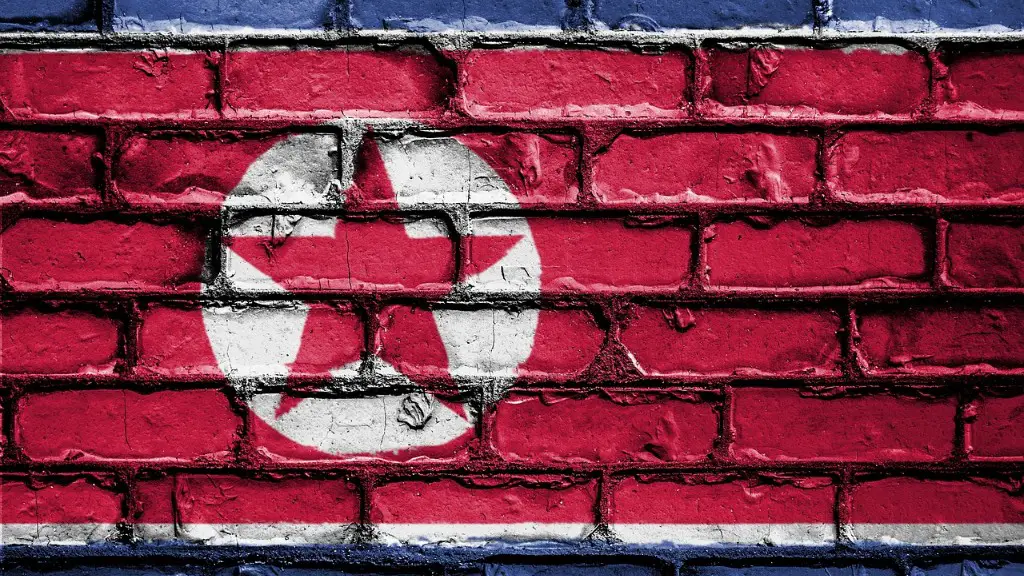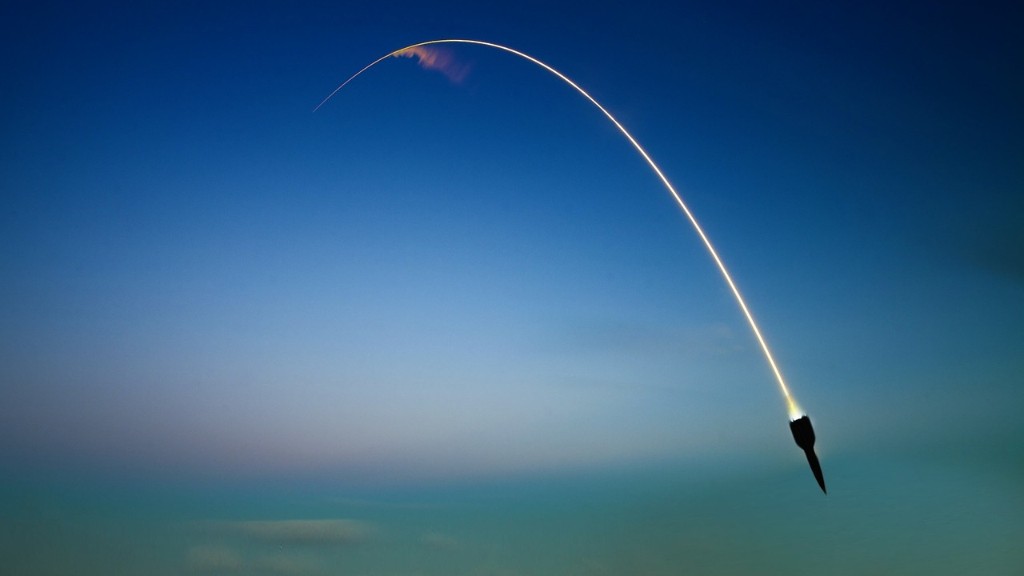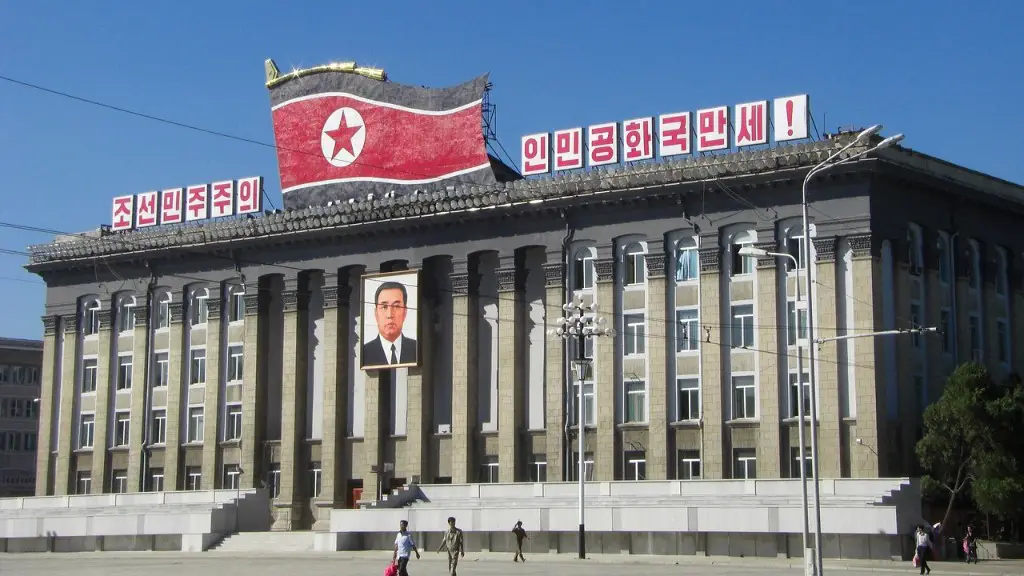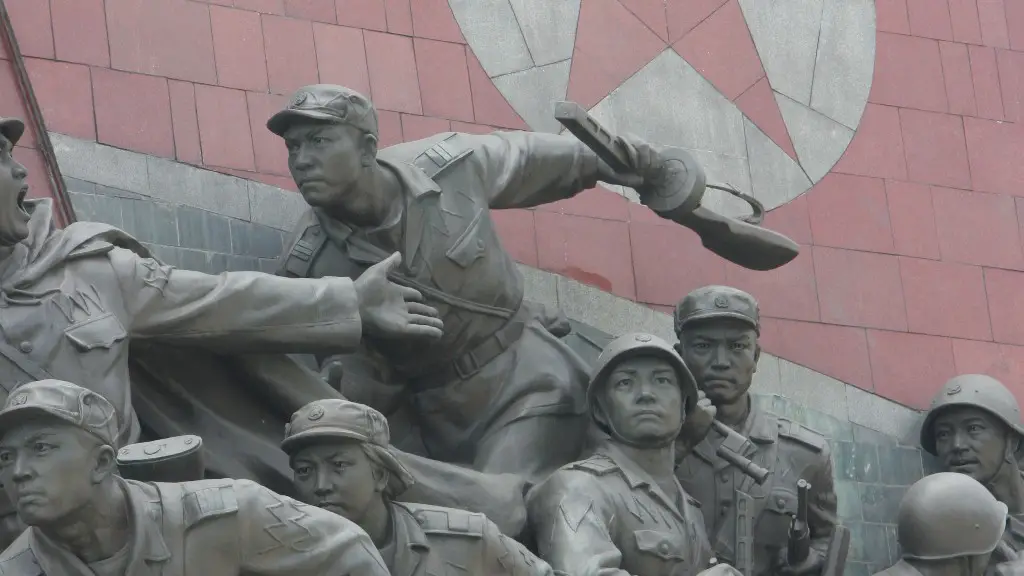Who Is Kim Jong-Un?
Kim Jong-un is the supreme leader of North Korea and one of the most enigmatic international figures of this modern era. Little is known of the man behind the titles, but his despotic and unpredictable rule has led to international tension and instability around the Korean peninsula.
Kim was born in 1984 to the then-leader of North Korea, Kim Jong-il. Reportedly, Kim had a comfortable upbringing, with his father even arranging for him to complete his education abroad in Switzerland. After completing his schooling, Kim returned to North Korea to join the military and eventually succeeded his father as leader in 2011.
What Is North Korea’s Political Structure?
North Korea is officially regarded as a single-party communist state and follows a centralised command economy. It is the least economically developed nation in the entire world and has a GDP of only $50 billion. Additionally, the country remains isolated from the majority of the international community, barring a few diplomatic relationships.
North Korea’s political system largely revolves around the Kim family, with loyalty pledged to the leader for decades. Kim himself has been regarded as a deified figure and the country operates secret police and censorship to control the whereabouts and information of its citizens.
Is Kim Jong-Un Really Dead?
Since 2018, Kim Jong-un has been conspicuously absent from the public eye, throwing into question whether or not he remains alive. In April of 2020, a plethora of contradictory reports emerged claiming the North Korean leader had been ill and even passed away.
In response to these reports, a statement was released by China’s Central Political Bureau stating that Kim Jong-un was alive and well. Just a month later, he appeared unaged and vibrant in photographs published by North Korea’s state media.
It is fair to say, therefore, that Kim Jong-un is still alive – although it is impossible to know for sure due to the hermetically sealed society of North Korea. Experts are also divided on this issue with many analysts believing Kim Jong-un is indeed alive, although others remain more skeptical.
What Is the Perception of North Korea Around the World?
Internationally, there is an overarching sense of negativity and apprehension towards North Korea. Kim Jong-un is regarded as a strongman leader, striving to achieve nuclear power status, despite international condemnation. This has led to the country being sanctioned, both economically and diplomatically, by the United Nations.
Additionally, relations between North Korea and the US and its allies have worsened since the start of the Trump administration. US president Donald Trump has been vocal in his criticism of the country and its leader, and increasing tensions between the two countries could potentially lead to a dangerous level of hostility.
What Are the Potential Consequences of the North Korea’s Political Movements?
The consequences of North Korea’s political movements are manifold, with far-reaching effects that could potentially impact the entire world. The aforementioned nuclear ambitions of North Korea manifests in fears of a potential nuclear attack, with the weapons potentially being sold to rogue states like Iran and Syria.
Moreover, the presence and continued rule of Kim Jong-un keeps international tensions high, and could potentially lead to all-out conflict between North Korea, the US, and its allies. Behind the political manoeuvrings of the country lies a humanitarian crisis, as deplorable living standards, food shortages, and poverty run rampant.
How Can the International Community Respond?
Currently, the international community has yet to find a comprehensive solution to the myriad of issues posed by North Korea. Nevertheless, it could be argued that the most sensible way forward would be structured and sincere negotiations between the North Korean government, the US, and its allies.
International organisations could also be utilised to bring about change in the country. For example, UNICEF has conducted a number of initiatives to help North Korean children in recent years, while the World Food Programme works to help tackle food shortages in various nations around the world, including North Korea.
What Measures Can the US Take to Respond?
The US and its allies are, fundamentally, some of the most influential powers on the world stage. They wield a great deal of economic, political, and diplomatic control, and it could reasonable to assume that they could be instrumental in the de-escalation of tensions between itself and North Korea.
The US and its allies could, for example, implement targeted sanctions to respond to prevailing issues in North Korea, such as the nuclear arms race, with increased monitoring and restrictions on certain military activities. It could also urge its allies in the region to take a central role in negotiations, with the intent of bringing about meaningful change.
What Are the Steps North Korea Can Take to Achieve Peace?
In order to achieve lasting peace, substantial steps must be taken by both North Korea and the US. North Korea must first of all end the nuclear arms race, which many members of the international community fear could one day lead to some sort of nuclear conflict. It must also improve the living standards of its citizens, with initiatives to tackle food shortages, poverty, and access to essential services.
Additionally, North Korea needs to see its human rights record improved and open up to international scrutiny. This will take careful diplomacy, investment of international aid, and dialogue on the part of both North Korea and its international partners, but it is possible with a concerted and sustained effort.
What Would Be the Impact of a Change in Leadership In North Korea?
The impact of a potential change in leadership in North Korea could be potentially devastating in both the short-term and long-term. If a new leader was to arise, they would likely face considerable hostility and suspicion, both internally and externally.
The death of Kim Jong-un is thus a worrying prospect for the international community. A new leader might not share the same level of restraint exemplified by Kim, and could potentially inherit a significantly hostile political atmosphere both internally and externally. It is therefore imperative that internal stability is maintained so as to prevent any further escalation.
Conclusion: Is North Korea’s Place Secure in the International Community?
North Korea’s place in the international community currently remains somewhat precarious. The country continues to operate in a manner that is at odds with other nations, with the proliferation of its nuclear arms program and dismal human rights record causing international uproar.
With questions also remaining surrounding Kim Jong-un’s health and potential successor, it could be argued that the totality of North Korea’s position in the international community remains uncertain. The key now for both North Korea and its international counterparts must be establishing meaningful bonds of trust and understanding, if there is to be any hope of lasting change in the peninsula.





